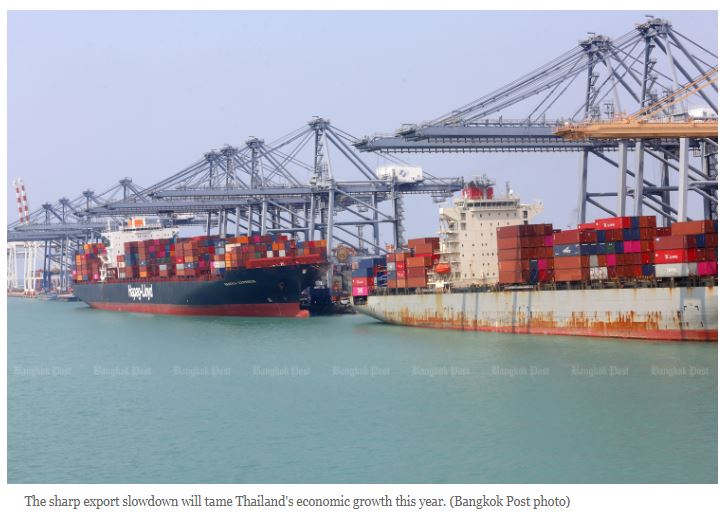Thailand: ADB lowers outlook for GDP growth
Thailand’s GDP is set to grow by less than 4% this year and next after the first-quarter growth downturn and the sharp export slowdown provided a backdrop of subdued momentum going forward, says the Asian Development Bank (ADB).
“The growth forecast for 2019 is downgraded to 3.5% to reflect the lower growth outcome in the first quarter and, in particular, a surprisingly sharp slowdown in exports,” the ADB said in its latest Asian Development Outlook Supplement issued yesterday.
The GDP growth forecast is the second lowest behind Singapore out of six Southeast Asian nations the ADB covers.
Economic growth in Thailand slowed from 3.6% year-on-year in last year’s fourth quarter to 2.8% in the first quarter of 2019, marking the weakest growth since 2014’s final period.
Private consumption and investment continue to expand, along with public spending, to support economic growth, the ADB said.
Sustained growth in income, low unemployment and stable prices helped to drive private spending during the first three months, said the Manila-based lender.
Customs-cleared outbound shipments, however, fell by 5.8% year-on-year in May after contracting 2.6% in April and 4.9% in March, according to the Commerce Ministry.
A slowdown in global trade fanned by the Sino-US trade dispute and the baht’s appreciation were cited as the culprits derailing Thai shipments.
“A rising Thai baht could further crimp exports,” the ADB said. “The growth forecast for 2020 is similarly adjusted down to 3.6%.”
The baht is Asia’s best-performing currency against the US dollar, up 5.5% in the year to July 18.
Thailand’s high current account surplus and ample foreign reserves fall under safe-haven criteria, attracting offshore speculative inflows into the country’s capital market.
The strong local currency has been a nuisance for businesses operating in the export sector, with many blaming the Bank of Thailand for feeble efforts to rein in the baht’s strength.
The central bank has since issued measures to tame offshore capital inflows by reducing new short-dated bond issuance, lowering the cap on the outstanding balance of non-resident accounts and tightening the reporting requirements for non-residents’ holdings of domestic debt securities.
For developing Asia, the ADB is maintaining economic growth forecasts at 5.7% and 5.6% for this year and next, with domestic demand supporting economic expansion as US-China trade tensions persist.
“Until the two sides reach agreement, trade tensions will continue to weigh on the regional outlook,” the bank said.
Source: https://www.bangkokpost.com/business/1714880/adb-lowers-outlook-for-gdp-growth


 Thailand
Thailand




